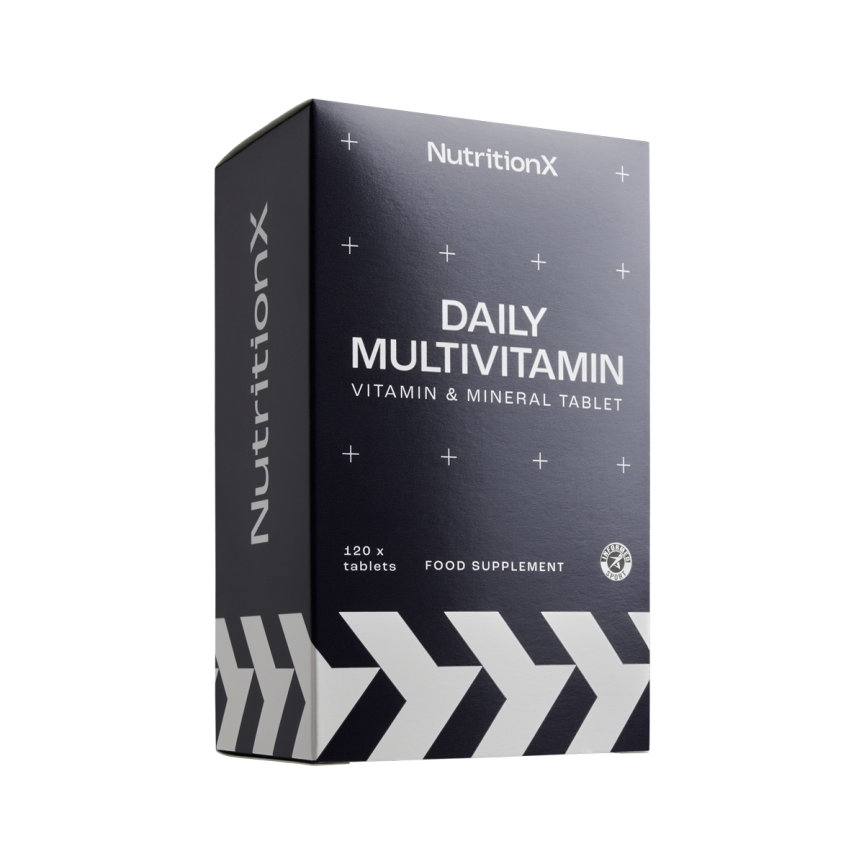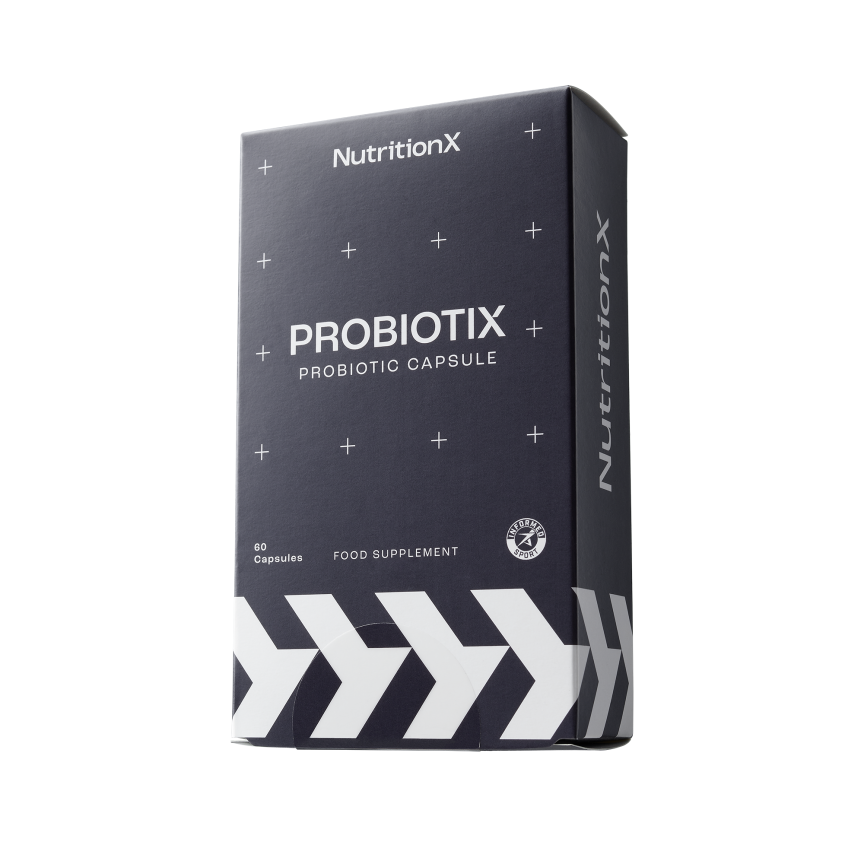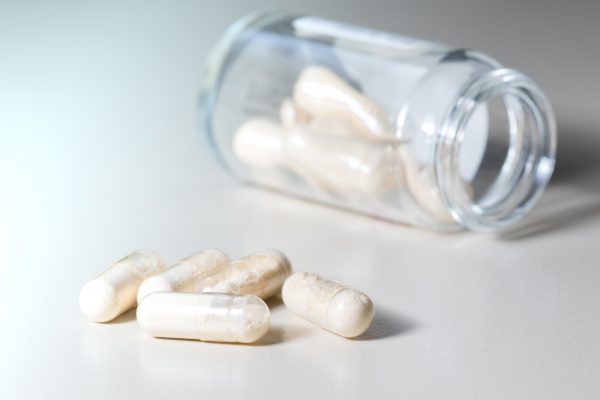Over recent years, probiotics have really come to the fore as an important supplement to consider taking as part of your daily routine. But what exactly is good bacteria, and why is it good for an athlete’s gut health? Most importantly, can probiotics help your athletic performance by positively influencing the gut microbiota?
How is the gut microbiome important to sports performance?
Gastrointestinal illnesses and food-related gut issues (i.e. bloating) can be a problem for athletes as they may disrupt training, and these symptoms can be supported and alleviated with the use of probiotics to promote good gut health. A healthy gut also allows for many other physiological functions to operate normally, such as an improved immune system, good metabolic health and healthy brain function, i.e. mood and cognitive performance.
What are probiotics' role in gut health?
Probiotics are live microorganisms (good bacteria) that provide health benefits to the gastrointestinal (GI) tract. Probiotics interact directly with the GI tract to positively influence the composition, function and metabolic health of the gut microbiota, ie. encouraging good gut bacteria. In turn, this can lead to better physical and mental health, as the gut is heavily linked to the health and performance of other physiological functions, such as the brain and immune system. For a detailed look at what exactly probiotics are and how they work, check out our detailed article here.
Can probiotics improve athletic performance?
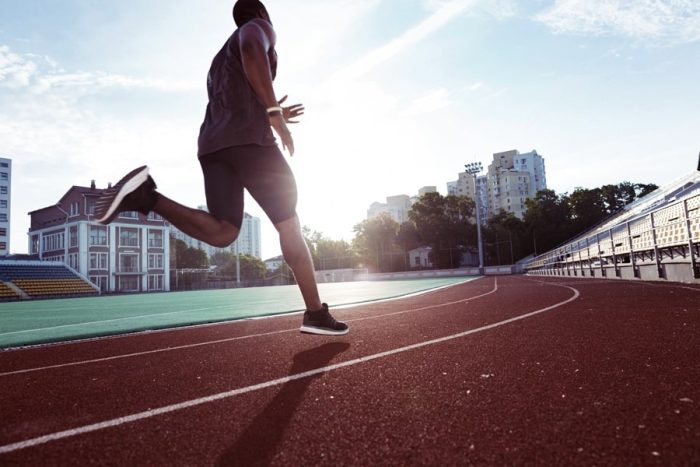
In short, yes! There is evidence to suggest that probiotic supplementation can improve athletic performance, particularly for endurance athletes partaking in endurance events that are likely to cause some degree of gastrointestinal distress, such as running in the heat.
Whilst exactly how probiotics can improve performance are not well known and can be multifactorial, probiotics are known for their involvement in reducing symptoms of gut-related issues and the positive impact that this has on energy metabolism; likely a key influence in athletic performance. Check out our in-depth X-Change article on Probiotics and Sports Performance for a detailed look at how exactly probiotic intake can affect sports performance for athletes.
What are the pros and cons for athletes taking probiotics?
As with any supplement, there can arguably be pros and cons for athletes considering integrating a daily probiotic into their nutrition strategy.
Pros of taking probiotics:
- Reduces the risk of traveller's diarrhoea
- Reduces the risk of illness
- Improves other gut related symptoms
- Improves energy levels
Cons of taking probiotics:
- Needs to be taken daily for long term benefits
- Recommended 4 week supplementation period prior to travel
- Huge range of probiotic strands are available
- Immediately taking probiotics to fix a gut related issue doesn’t necessarily identify or solve the existing problem
Do probiotics help with energy levels?
Probiotics can improve energy levels indirectly, by firstly enhancing the health of the bacteria in the gut, which then has a positive impact on how the body can use the digested food to be metabolised more efficiently for energy. So, whilst they wouldn’t have the impact of an energy-specific supplement, they may well indirectly help athletes generate energy from food more effectively.
How long should you take probiotic supplements for?
Probiotic supplements should be taken for at least 4 weeks prior to a main competition, or travel to another country, as this provides sufficient time to enhance the level of good bacteria in the gut. For athletes that are frequently experiencing gut issues, competing and/or travelling, then daily supplementation is recommended to support each requirement and positively influence overall gut health.
Should athletes take vitamin supplements or probiotics?
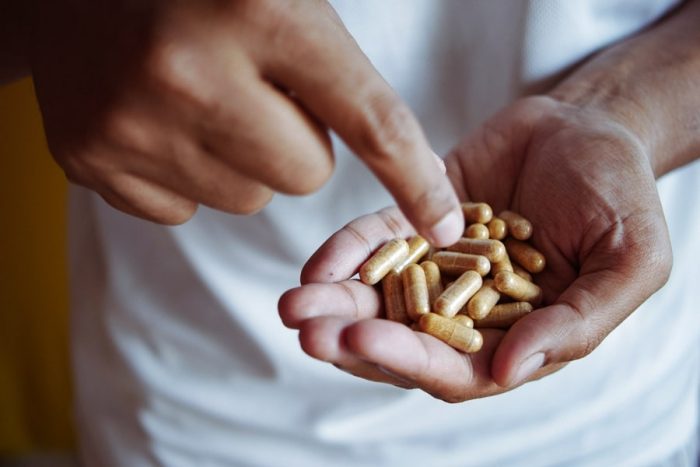
High volumes of intense training places additional stress on an athlete’s body, increasing the need for a wide variety of nutrients to help keep you in good health; as well as helping to keep athletic performance at its peak. A multivitamin is an insurance policy to ensure that athletes are getting the minimum required vitamins and minerals each day, but this does not replace good quality food i.e. fresh fruit and vegetables.
Such high volumes of training and environmental factors, such as training in hot or cold weather conditions, or long-haul travel, can further exacerbate the stress placed on the gut to function properly, which is where probiotics come in. Probiotic supplements may then be advised to help alleviate these symptoms to maintain health and training levels, supporting good gut health overall.
So, in short, athletes should consider a high-strength multivitamin like the Nutrition X Complete Daily Multivitamin and a probiotic like the Nutrition X Probiotix Probiotic Tablets in order to keep any potential deficiencies at bay, as well as reducing the risk of any gut-related performance issues.
Are there specific probiotics for athletes?
There are many different probiotic strains out there which athletes can consider supplementing with, although some have been more heavily researched for their impact on athletes’ gut health in particular; such as the Nutrition X Probiotix Probiotic Tablets. These have been scientifically-formulated with athletes in mind, containing Lactobacillus and Bifidobacterium blend of Lactobacillus acidophilus CUL60, Lactobacillus acidophilus CUL21, Bifidobacterium animalis subsp. lactis CUL34 and Bifidobacterium bifidum CUL20. Importantly, these are some of the most heavily-researched strains in the world, and have been used in numerous trials with athlete populations.
Is eating fermented food good for gut health?
Fermented foods contain live microbes which are suggested to improve gut health by increasing the diversity of gut microbes and decreasing inflammation for an improved immune response. This includes foods such as kefir, yoghurt, kombucha, sauerkraut and kimchi.
Check out the Nutrition X Probiotix Probiotic Tablets if you’re considering supplementing with a daily probiotic here.





